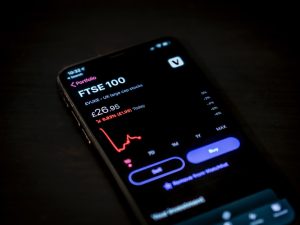Robert Green, the founder of GreenTraderTax, is a renowned expert in the field of taxation for traders and investors. He has written several books and articles, and has been quoted in major financial publications such as The Wall Street Journal, Forbes, and CNBC. In his consultations about taxes in forex, Robert Green provides valuable insights into the tax implications of forex trading.
Forex trading involves buying and selling currencies on the foreign exchange market. The objective is to make a profit by buying a currency at a low price and selling it at a higher price. Forex trading is popular because of its potential for high returns, but it also carries a high level of risk.
One of the key things that Robert Green advises forex traders is to keep detailed records of their trades. This includes the date of the trade, the currency pair traded, the buy and sell prices, and the profit or loss made on the trade. These records are important for tax purposes and can help traders to accurately calculate their tax liability.
In the United States, forex trading is subject to tax laws that vary depending on the trader’s classification. Traders who engage in forex trading as a hobby are subject to different tax laws than those who trade forex as a business. Robert Green advises traders to determine their classification and understand the tax laws that apply to them.
For traders who trade forex as a business, Robert Green recommends forming a separate legal entity such as a limited liability company (LLC) or a sole proprietorship. This can provide several benefits, including liability protection, easier tax reporting, and the ability to deduct business expenses.
Robert Green also advises traders to be aware of the wash sale rule, which prohibits traders from claiming a loss on a trade if they purchase a substantially identical security within 30 days before or after the sale. This rule can apply to forex trading, and traders need to be mindful of it when planning their trades.
Another important tax consideration for forex traders is the treatment of forex gains and losses. Forex gains and losses are treated as ordinary income or loss, and are subject to the ordinary income tax rate. This means that forex traders who make a profit on their trades will be subject to higher tax rates than traders who make a loss.
Robert Green advises traders to consider using a Section 1256 contract to reduce their tax liability. Section 1256 contracts are a type of financial instrument that includes futures contracts, options on futures contracts, and foreign currency contracts. These contracts are subject to a lower tax rate than ordinary income, and can be an effective way for traders to reduce their tax liability.
In conclusion, Robert Green’s consultations about taxes in forex provide valuable insights into the tax implications of forex trading. He advises traders to keep detailed records of their trades, determine their classification, form a separate legal entity if trading as a business, be aware of the wash sale rule, and consider using a Section 1256 contract to reduce their tax liability. By following these guidelines, forex traders can ensure that they are compliant with tax laws and minimize their tax liability.





